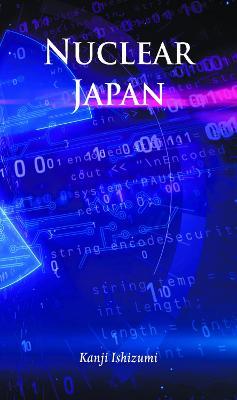Nuclear Japan

Nuclear Japan
These observations are based upon the premise that, with war having been a constant feature of humankind's evolution, a nation's security and prosperity are inextricably linked with its military strength. To illustrate the point, the author compares the revered historical cities of Venice and Aleppo. Of the two, Venice benefited from having the most advanced military capacity of mediaeval times and thus enjoyed prolonged stability while Aleppo constantly suffered at the hands of more powerful enemies. Japan more closely resembles the latter. In the postwar era, it is the states equipped with nuclear weapons that have dictated the balance of power. Indeed, the four countries of most significance to Japan's present security are its ally the United States and the hostile or potentially hostile China, Russia and North Korea - all of them nuclear-armed. As the ultimately fruitless meetings between North Korean leader Kim Jong Il and former US President Donald Trump illustrate, North Korea has absolutely no intention of giving up its nuclear and other advanced armaments. But even if it were to do so, the more menacing threat to Japan comes from China. With its militarisation of the South China Sea, its aggressive intentions towards Taiwan, its provocative behaviour around the Senkaku (Diaoyu) islands, its relentless military expansion and its determination to replace America as the regional hegemon, China represents an undoubtedly grave danger to Japan. The author proposes a two-pronged strategy. Firstly, Japan should construct a network of nuclear shelters sufficient in scale and number to protect its people - particularly in the populous urban areas that would probably be targeted by the enemy. Secondly, Japan should join NATO and avail itself of the protection afforded by American nuclear warheads and bombs while preparing itself for war. However, if joining NATO turned out to be unfeasible, Japan should instead divert the resources currently allocated to maintaining the US military presence in the country to developing its own atomic warheads and bombs as well as submarines equipped with nuclear missiles. Despite the received wisdom that Japan is forbidden by its constitution from having nuclear weapons, the author points out that the issue has been raised by various administrations in the past going as far back as that of Prime Minister Kishi Nobosuke in 1957. Moreover, the frequent port calls by US submarines and aircraft carriers laden with atomic wea
PRP: 47.60 Lei
Acesta este Prețul Recomandat de Producător. Prețul de vânzare al produsului este afișat mai jos.
42.84Lei
42.84Lei
47.60 LeiIndisponibil
Descrierea produsului
These observations are based upon the premise that, with war having been a constant feature of humankind's evolution, a nation's security and prosperity are inextricably linked with its military strength. To illustrate the point, the author compares the revered historical cities of Venice and Aleppo. Of the two, Venice benefited from having the most advanced military capacity of mediaeval times and thus enjoyed prolonged stability while Aleppo constantly suffered at the hands of more powerful enemies. Japan more closely resembles the latter. In the postwar era, it is the states equipped with nuclear weapons that have dictated the balance of power. Indeed, the four countries of most significance to Japan's present security are its ally the United States and the hostile or potentially hostile China, Russia and North Korea - all of them nuclear-armed. As the ultimately fruitless meetings between North Korean leader Kim Jong Il and former US President Donald Trump illustrate, North Korea has absolutely no intention of giving up its nuclear and other advanced armaments. But even if it were to do so, the more menacing threat to Japan comes from China. With its militarisation of the South China Sea, its aggressive intentions towards Taiwan, its provocative behaviour around the Senkaku (Diaoyu) islands, its relentless military expansion and its determination to replace America as the regional hegemon, China represents an undoubtedly grave danger to Japan. The author proposes a two-pronged strategy. Firstly, Japan should construct a network of nuclear shelters sufficient in scale and number to protect its people - particularly in the populous urban areas that would probably be targeted by the enemy. Secondly, Japan should join NATO and avail itself of the protection afforded by American nuclear warheads and bombs while preparing itself for war. However, if joining NATO turned out to be unfeasible, Japan should instead divert the resources currently allocated to maintaining the US military presence in the country to developing its own atomic warheads and bombs as well as submarines equipped with nuclear missiles. Despite the received wisdom that Japan is forbidden by its constitution from having nuclear weapons, the author points out that the issue has been raised by various administrations in the past going as far back as that of Prime Minister Kishi Nobosuke in 1957. Moreover, the frequent port calls by US submarines and aircraft carriers laden with atomic wea
Detaliile produsului










